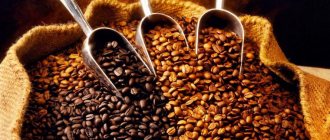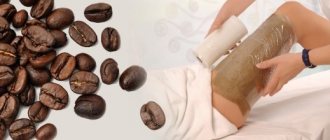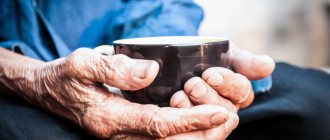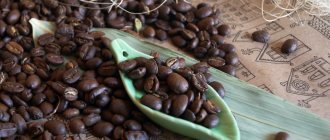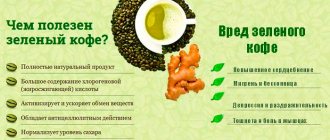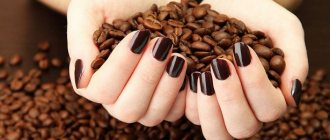There is a lot of talk about the benefits of coffee: this drink increases energy levels, gives vigor, and restores strength. And it seems that this is exactly what you need after a grueling workout. In addition, we can sometimes see photos of celebrities drinking coffee as they leave the gym. But is it possible to drink coffee after a workout? What do doctors, coaches and professional athletes say about this? Everything is not as clear as it may seem.
Is it possible to drink coffee after a workout?
Despite the fact that large-scale global long-term studies have not been conducted in this area, the results of analyzes show a clear effect. Experts do not recommend consuming caffeine after strength training. It slows down the transfer of glycogen to the liver and interferes with protein synthesis for muscle growth and recovery. You need to wait 2 hours before consuming caffeine in any form - except coffee, it is found in tea, soda (Pepsi, Coca-Cola and analogues), cocoa and chocolate.
In addition, after an active exercise, the cardiovascular system is actively working, and increased stress from caffeine can result in illness. A cup of coffee after a workout will narrow the blood vessels, which are already tense, actively supply oxygen, and blood is pumped. The appearance of tachycardia, chest pain or the inability to take a deep breath are only minimal troubles that can be earned from a cup of espresso at the gym.
If you want to build muscle, you need protein, and it is actively synthesized after training. Wait two hours before drinking coffee, so the results from exercise will come faster.
Research by scientists
For about 10 years, scientists and cardiologists from the Massachusetts Institute monitored patients who had suffered a heart attack. Those people who drank coffee regularly lived longer on average than those who preferred tea or other drinks. During the control period, those patients who drank a cup of coffee once a day had an almost 50% lower risk of unexpected death.
Scientists from South Korea expressed a similar worldview. The study involved more than 25,000 healthy men and women. They measured the level of calcium in the coronary artery, which directly affects the risk of blockage of the coronary vessels and, consequently, the possibility of a heart attack. After analyzing people's habits, including the level of coffee consumption, scientists found that those who drink 1-2 cups a day have more elastic blood vessels and less calcium deposits.
Interestingly, increasing the amount of coffee to 3-5 cups per day did not have the best effect. Maybe it’s because of the larger amount of caffeine, which in this case narrowed the blood vessels.
Explanation of the data acquired as a result of research work - in natural substances that are contained specifically in coffee. And it’s not just about caffeine; it is found in approximately the same volumes in tea, but also in natural acids, vitamins, microelements, and antioxidants. They have a beneficial effect on the ability of blood vessels to be elastic and cleanse them from the inside.
Coffee after workout for weight loss
If muscle growth is not yet part of your plans, and you are working out to lose excess weight, drinking a cup of coffee in the gym is, in principle, possible. But again, if the workout was intense (aerobics, fitness, running - any cardio that stresses the heart), wait at least half an hour. Drink clean water, then you can indulge in a cup of espresso or Americano, and then abstain from food for another 2-3 hours. People who keep fit and do not set a goal to increase muscle mass are also not forbidden to drink coffee after the gym.
If you finished your workout with a long stretch, took a shower, and in general, 30 minutes have passed since active cardio, you can drink coffee. But muscle growth will be slowed down.
How to take caffeine
In laboratory studies, scientists were able to determine how much caffeine you can take per day. For well-trained athletes, it is enough to take 3-6 mg per 1 kg of weight immediately 30-60 minutes before the start of training. But in real conditions, the dosage may be higher - the athlete needs to monitor his reaction to a certain dose and compare the indicators.
How to take caffeine correctly:
- The optimal time is half an hour before training, unless otherwise indicated in the instructions. Almost all fat burners show their maximum effect when consumed before starting exercise.
- The optimal dosage varies from person to person. For those who have just started taking the supplement, an overdose can be observed as early as 100 mg, and with systematic use, even large doses of 200-400 mg are relatively easily tolerated. The best option is to start with a smaller dose and, monitoring the response, gradually increase it.
For example, MAXLER CAFFEINE is recommended to take 1 tablet per day 1 hour before training. One tablet contains 200 mg of caffeine.
In addition to sports nutrition, you can use caffeine sodium benzoate from the pharmacy. There are 40 and 60 mg in one tablet, respectively. Sodium benzoate increases the absorption of the active component. How to take caffeine sodium benzoate: the dosage regimen is the same as in the case of sports nutrition.
Caffeine in preparation for competitions
As you consume caffeine, your body develops a tolerance to it. In order for the supplement to show maximum effect when preparing for competitions, a few days before them it is necessary to either very much reduce the dosage of caffeine or completely abandon it.
As a result of entering the body after a break, the substance will give a more pronounced effect. To do this, before the start, it is enough to take 50-200 mg of caffeine from an energy sports drink, for example, QNT THERMO BOOSTER. It contains 30 mg of caffeine per 100 ml, and one serving is 700 ml. i.e. 210 mg of caffeine.
What kind of coffee can you drink after a workout?
If, when leaving the gym, you buy a huge glass of coffee with cream and caramel, there will be no effect from the training. It is clear that you need to exclude sugar (or better yet, its substitutes), as well as any fatty additives. Fat slows down the absorption of proteins and carbohydrates into the blood. Lovers of coffee with milk need to switch to low-fat products, even 1.5% is significant. You will lose weight and gain muscle more slowly. Naturally, cream, liquid and whipped, as well as any syrups are prohibited.
- It is best to drink natural black coffee, brewed in a Turkish coffee pot or prepared in a coffee machine. If espresso is too strong for you, you can drink an Americano.
- Instant coffee is the athlete's enemy. Metabolism is especially active in the first two hours after training, and all the chemical components and additives in the instant drink will quickly enter the bloodstream. This is a blow to the cardiovascular system. You won't get any benefit.
- Decaffeinated coffee is allowed. This is exactly the case when you can drink decaffeinated coffee even immediately after a workout, naturally, without sugar or fatty dairy additives. However, this is more a matter of taste, since you will not get much vigor: caffeine is present in minimal doses.
If you drink a decaffeinated drink after a workout, it should be natural, ground. Soluble granules are prepared using chemical solvents and additives.
Diet in the first days after a heart attack
The difficult first days after a heart attack completely exclude fatty, smoked and fried foods. Dairy products approved by the doctor, boiled meat, well pureed and without salt - this is what you can eat at such a time. If your weight exceeds the norm by far, it is necessary to take into account that this increases the possibility of hypertension, and then atherosclerosis. Therefore, for many reasons, it is necessary to exclude from the menu all confectionery products, including those that contain sugar and fats.
Following the diet rules in this way will help you lose weight and improve your sugar or cholesterol levels. Low-calorie nutrition is the best way out after a heart attack.
Purees, pureed vegetables and fruits, porridge prepared according to all the nuances of nutrition, and weak herbal tea (on the advice of a doctor) will help.
A number of products that may aggravate the condition are strictly prohibited:
- fried, salted, smoked, pickled food;
- having coarse fiber;
- alcoholic drinks, even in small doses;
- tomatoes and sauces and seasonings made from them;
- grapes are excluded from the fruit composition;
- baked goods, especially sweet ones;
- legumes and mushrooms.
Stenting procedure
The subacute period is not so difficult, but control over the diet does not decrease, especially if after a heart attack there was surgical manipulation to improve the patient’s condition. Often the stenting function is performed surgically, in other words, a stent is installed for support. It is necessary to eat in very small portions so as not to overload the body. But to avoid feelings of hunger, you can eat 6-7 times a day, and the last time you need to eat a few hours before bedtime.
It is strictly forbidden to consume the following products after stenting:
- coffee, cocoa, strong tea;
- chocolate;
- various spices;
- butter, margarine;
- alcoholic beverages and drinks containing dyes.
There is a calorie limit for such a diet; it must have a limit of 1,100 kcal per day. It is recommended to ensure that the amount of necessary fruits with a high content of vitamins increases evenly, as well as cereals. Salt is included evenly in the diet, but with a limit: 5 g per day. There should be a negligible amount of fat, and more carbohydrates.
Coffee before training: is it possible?
Before going to the gym, drinking coffee is not only possible, but also recommended. Of course, not before you get on the treadmill or exercise, but a little before. Drinking a cup of strong coffee (perhaps even with sugar and milk) at least half an hour before, or better yet an hour before, will increase your energy levels and stamina. You will be able to train longer, be more active, lift heavier weights, run longer distances, etc.
This applies only to natural coffee, which will charge the body with antioxidants, vitamins, beneficial natural substances, and provide a dose of caffeine. Energy is guaranteed, so drink coffee before training, but not on an empty stomach. Eat a banana, porridge, or even fast carbohydrates (energy bars), and exercise as productively as possible.
Try to wash down a cup of coffee with a couple of glasses of clean water. This way you will avoid dehydration.
Caffeine Basics
Caffeine belongs to the alkaloids - substances that are organic alkali obtained from plants. These are nitrogen-containing organic compounds with one or more nitrogen atoms. Alkaloids were first obtained more than 200 years ago from poppy seeds, after which scientists discovered a number of similar compounds that are part of plant materials.
Alkaloids have a powerful effect on the human body, primarily on the nervous system. This also applies to caffeine, which manifests itself as a powerful central nervous system stimulant. As an alkaloid, caffeine is included in the subgroup of methylxanthines (xanthine derivatives), and is their main representative. These substances are used in sports nutrition as stimulants.
Caffeine is found in the following plants:
- coffee tree;
- tea;
- guarana;
- cola;
- mate.
Caffeine isolated from tea is also called “theine”, and from mate – “matein”. For pharmacological purposes, caffeine is produced synthetically by extracting it from plants. Extraction in chemistry is the process of isolating a substance from any composition by dissolving it in a special substance. In sports drinks, caffeine is used separately, as part of fat burners, energy drinks, pumping complexes or pre-workout complexes.
We advise you to study: All about pre-workout complexes.”
Caffeine and Muscle Recovery
It is often recommended to drink coffee after a workout because it will help remove lactic acid faster and reduce the pain of sore throat. This works, but does not eliminate the fact that muscles will grow more slowly and the load on the cardiovascular system will increase. Bodybuilders still advise drinking coffee before training, and not after - the effect is approximately the same, only the muscles, in principle, become less clogged and sore. Lactic acid is eliminated in the process and gradually. Or drink your favorite drink 2 hours after exercise; this is not such a long period that you can say that your muscles will hurt much more. Nothing will happen in 2 hours.
If you want maximum benefits from coffee, the best time is still 2 hours after training. And cheer up, and the strength will decrease, and the muscles will grow more intensely.
Contraindications and symptoms of overdose
Caffeine is a natural and, more importantly, very common substance. People who have contraindications to it probably already know about this. However, you should be a little more careful with dietary supplements, since it is much easier to overdose on caffeine with tablets than with regular coffee. Here is a list of who should not take caffeine pills for athletes:
- teenagers under 18 years of age;
- To old people;
- pregnant women;
- women during lactation;
- patients with diabetes;
- people with serious cardiovascular diseases;
- for sleep disorders;
- with epilepsy or a tendency to seizures.
People with contraindications are not prohibited from taking caffeine benzoate tablets, but before use they must consult a specialist. If taking caffeine for training leads to any negative consequences, then you need to stop the course and immediately consult a doctor. Symptoms of caffeine overdose may include:
- anxiety and anxiety;
- epileptic seizures;
- headache and ringing in the ears;
- insomnia;
- high blood pressure and rapid heart rate.
Stopping treatment abruptly may lead to other negative consequences. If you give up caffeine in 1 day, rather than gradually reducing the dosage, you may experience increased fatigue, lethargy and drowsiness. And low-quality dietary supplements can lead to digestive disorders: abdominal pain, nausea, vomiting, diarrhea, and so on. In general, improper use of caffeine-sodium benzoate in sports can easily lead to various negative consequences, so you must strictly adhere to the instructions.
Delivery throughout Russia You can order sports nutrition in the KULTURIST#1 online store anywhere in Russia. More detailed information about delivery can be found on the “Delivery and Payment” page. Retail store addresses
#1 St. Petersburg Strike Avenue 96k3, st. m. Avtovo
#2 Novorossiysk st. Yuzhnaya, 21
#3 Sochi st. 20th Mountain Rifle Division, 18a
Harm of coffee drinks
Clear benefits for athletes can only come from the natural coffee beans from which the drink is made. The use of soluble powder, called so-called, does not carry any value.
The main negative aspects of instant coffee are the following:
- a large number of dyes and preservatives;
- harmful acids;
- carcinogens.
All these harmful substances contribute to clogging of the body. Components obtained artificially are deposited in the kidneys, which over time leads to the development of disease of the excretory organs.
It has also been proven that instant drink accelerates the loss of calcium by the body and provokes heartburn.
Preservatives and other harmful compounds worsen metabolism, contribute to slagging in the body and, as a result, lead to weight gain.
In addition, the artificial type of the drink interferes with the natural absorption of vitamins by the body.
All these factors lead to the development of inflammatory processes in the body and the occurrence of cancer.
The effect of coffee on physical condition
The effect of just one cup of natural coffee, drunk before a run or workout in the gym, is multifaceted.
- Release of adrenaline into the blood . This lowers the pain threshold, so the workout can be more intense: faster pace, more weight. Weightlifters and wrestlers will appreciate this. Endurance also increases: coffee drunk before running allows you to run a longer distance without a break. The recovery period after such increased loads is painless: muscle glycogen resynthesis occurs faster.
- The work of the heart accelerates . As a result, breathing is not interrupted, and all cells receive more oxygen. The muscles are ready for more intense work.
- Cheerfulness . Sometimes, before playing sports, a person needs doping to cheer him up. Coffee copes with this task perfectly: a surge of energy and a good mood are a good basis for a quality workout.
- Fat burning . Many people go to the gym and run in the park to lose weight. Espresso will not replace regular exercise, but it can help you lose weight. After all, coffee drinkers speed up their metabolism and the fat layer disappears faster. It should be remembered that we are talking about natural black coffee without sugar, it has almost zero calorie content. And nutritious lattes and cappuccinos will definitely not help in the fight against kilograms.
- Reaction improves . The central nervous system is stimulated, the speed of passage of nerve impulses increases. The positive effect will be noticeable in those sports where decisions need to be made instantly: tennis, football, cycling.
https://www.youtube.com/watch?v=IT5QmuXCZbY
- This is interesting: How coffee affects the body and how long the effect lasts


